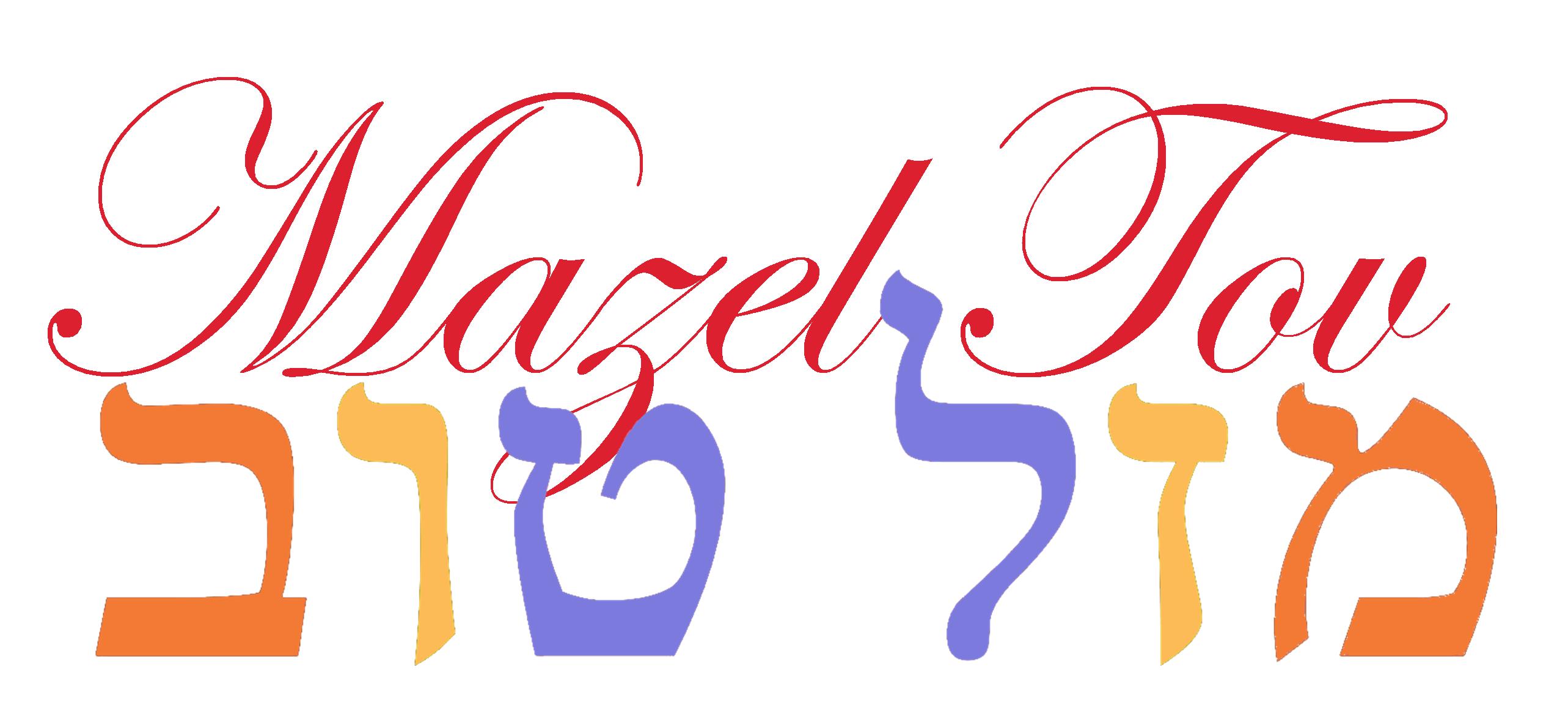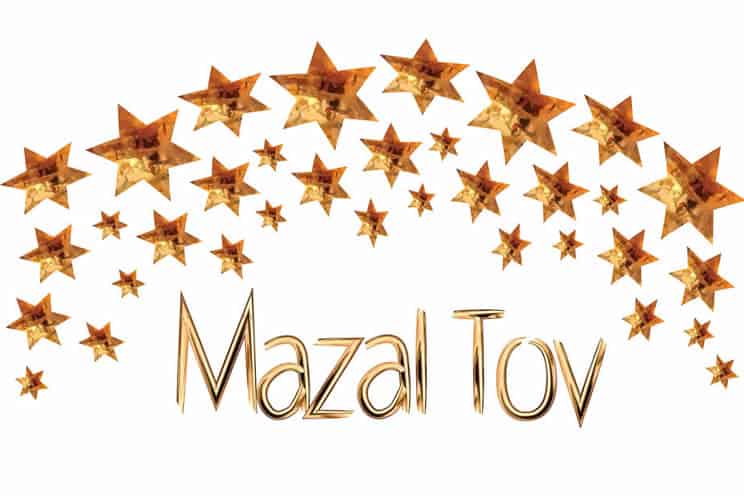Is It Okay To Say Mazel Tov? Exploring This Joyful Phrase
Have you ever heard someone exclaim "Mazel Tov!" at a celebration, perhaps at a wedding, a graduation, or even a birthday gathering? It's a phrase that truly carries a special kind of energy, and you might have found yourself wondering, just a little bit, about its proper use. Is it something anyone can say, or is it reserved for certain moments or people? It's a fair question to ponder, you know.
In a world that feels, well, a bit more connected these days, understanding different cultural expressions can really help us build bridges. Just like the word "okay" has traveled across the globe to become a nearly universal sign of agreement or acceptance, some phrases from specific traditions can also spread their good feelings far and wide. We all want to share good wishes, don't we?
This article will, in a way, take a closer look at "Mazel Tov." We will explore its meaning, how it functions, and whether it is, indeed, generally accepted for anyone to use. You might be surprised at just how widely this lovely expression of joy and good fortune is welcomed, really.
Table of Contents
- What Does "Mazel Tov" Really Mean?
- The Global Reach of "Okay" and "Mazel Tov"
- Is It "Okay" to Use "Mazel Tov"? Addressing Your Concerns
- Common Questions About "Mazel Tov"
- Embracing Cultural Expressions
What Does "Mazel Tov" Really Mean?
So, what do we actually mean when we say "Mazel Tov"? This phrase, which comes from Hebrew and Yiddish, quite literally translates to "good fortune." It's a lovely sentiment, isn't it? It suggests a hope that good things will come your way, or that a happy event marks the beginning of even more good experiences. It's more than just a simple word; it's a feeling of shared happiness, really.
A Wish for Good Fortune
"Mazel Tov" is, in essence, a wish for good luck. While it literally means "good fortune," its common use extends far beyond just luck. When someone says it, they are truly expressing congratulations for a happy event. Think of it as a verbal pat on the back, a cheer, or a warm embrace for someone experiencing a moment of joy. It's a way to acknowledge something special that has just happened, and to wish for continued good things, you know.
More Than Just Congratulations
While "congratulations" is a big part of "Mazel Tov," it's also used for "best wishes." This makes it incredibly versatile. It's not just for big, formal achievements. It's for any happy occasion where you want to show your support and joy for another person. For instance, it's used as a birthday greeting. Interestingly, in some traditions, they don't say "happy birthday" directly; instead, they use "Mazel Tov" to mark the special day, wishing good fortune for the year ahead. This is quite a lovely thought, actually.
A Spiritual Connection
When we say "Mazel Tov," we are, in a way, saying a brief prayer. This prayer is strongly influenced by the "mazalot," which are like the constellations or one's destiny. The hope is that God will ensure that the "energy" sent out at that moment will be only for good. It's a deep wish for positive outcomes, and it carries a sense of spiritual well-being. This deeper meaning adds a rich layer to the phrase, making it more than just a casual remark, you see.
The Global Reach of "Okay" and "Mazel Tov"
It's fascinating how some words just travel the world, isn't it? "Okay" is a prime example, and in some respects, "Mazel Tov" shares a similar journey of acceptance, albeit in its own special way. Both phrases, in their own spheres, have managed to cross boundaries and find a place in various conversations, which is pretty cool.
"Okay": A Universal Signal
The word "okay," or "ok," is an English word that began in American English. It has, in fact, spread across the globe in less time than you might think. From Buenos Aires to Bangkok, Montreal to Moscow, nearly every taxi driver in the world understands "ok." It's a gift from American English, and it truly denotes approval, acceptance, agreement, or assent. The meaning and usage of "okay" and "ok" are the same, and there aren't any regional variations that change its core message, unlike some other words, so it's quite simple.
This incredibly versatile word can express agreement, or even help you change the topic of conversation. You can say "okay" to check whether the person you are talking to understands what you have said and accepts it. It's an informal term, commonly used to convey agreement, acceptance, or understanding. It is often used as a response to a request or statement, indicating that one agrees with or acknowledges something. It's truly a flexible little word, isn't it?
"Mazel Tov": Spreading Good Vibes
Just like "okay" has become a universal sign of acceptance, "Mazel Tov" has, in a way, become a widely accepted expression of joy and good wishes. While it has a specific cultural origin, its positive sentiment has allowed it to transcend those boundaries. People hear it, they understand its meaning of congratulations and good fortune, and they often want to use it to share in happy moments, which is a lovely thing.
The very idea that a phrase wishing good fortune can be shared and understood by many, regardless of their background, speaks volumes. It shows how positive words can truly connect people. So, in some respects, "Mazel Tov" is becoming, more or less, a universal good wish, a bit like "okay" is a universal sign of agreement, you know.
Is It "Okay" to Use "Mazel Tov"? Addressing Your Concerns
This is the big question, isn't it? Given its cultural roots, it's natural to wonder if saying "Mazel Tov" is appropriate for everyone. The good news is, for the most part, it is absolutely fine. The key, like with many things, often comes down to sincerity and context, you see.
Context Matters, But Often Not How You Think
You might think that the context of who says "Mazel Tov" is very important, but actually, it's often simpler than that. The provided information suggests that even if someone unexpected were to say "Mazel Tov" to an 85-year-old Palestinian celebrating a degree, it wouldn't be offensive to most people. This really highlights the phrase's inherent positive nature. It's generally perceived as a genuine expression of good wishes, not something that requires specific cultural membership to utter.
The text specifically notes, "Coming from someone like you, it should not be a problem at all." This implies that if you are genuinely wishing someone well, and you say "Mazel Tov" with kindness, it will almost certainly be received in the spirit it is given. The intention behind the words, it seems, carries a lot of weight, you know.
When to Share the Good News
So, when is it a good time to say "Mazel Tov"? Pretty much any happy occasion where you would normally offer congratulations or best wishes. Think of weddings, engagements, births, graduations, new jobs, or even significant personal achievements. If someone has good news to share, "Mazel Tov" is a lovely way to respond. It's a way to participate in their happiness, and to acknowledge their good fortune, which is quite nice.
Remember, it's also used as a birthday greeting. So, if you're at a birthday celebration and want to offer a unique and heartfelt wish, "Mazel Tov" is a perfectly acceptable choice. It truly adds a touch of warmth to the moment, doesn't it?
Saying It With Sincerity
The most important thing when using "Mazel Tov" is to say it with sincerity. If your intent is to genuinely congratulate someone and wish them well, then the phrase will almost certainly be well-received. It's about sharing in someone's joy, not about cultural appropriation or trying to be something you're not. People can generally sense genuine warmth, and that's what truly makes the phrase meaningful, you know. It's like, just a little bit of heartfelt connection.
Common Questions About "Mazel Tov"
People often have a few questions about "Mazel Tov," especially if they are not familiar with its background. Here are some common inquiries that come up, and some simple answers to help you feel more comfortable using this wonderful expression, naturally.
Is "Mazel Tov" only for Jewish people to say?
No, not at all. While "Mazel Tov" originates from Hebrew and Yiddish, its meaning of "good fortune" and "congratulations" is universal. Many people from all backgrounds use it to express joy and good wishes at happy events. It's a phrase that has, in a way, spread beyond its original community, you know.
Can I say "Mazel Tov" if I'm not Jewish?
Absolutely, yes! If you are genuinely wishing someone well and celebrating a happy event with them, saying "Mazel Tov" is perfectly fine. The sentiment behind the phrase is positive and inclusive. It's generally welcomed as a warm expression of congratulations, especially when you are sharing in someone's happiness, you see.
Is "Mazel Tov" the same as "Happy Birthday"?
In some contexts, yes, it can be used as a birthday greeting. While it literally means "good fortune" or "congratulations," it is commonly used in place of "happy birthday" in certain traditions. So, if you hear it on someone's birthday, it's a lovely way of wishing them well for their special day and the year ahead, which is quite thoughtful.
Embracing Cultural Expressions
Learning about phrases like "Mazel Tov" is, in some respects, a fantastic way to broaden our horizons and connect with others. It shows a willingness to appreciate different traditions and the rich tapestry of human expression. When we use such phrases with respect and genuine feeling, we help to foster a more connected and understanding world, which is truly important.
Learning from Others
The spread of words like "okay" and "Mazel Tov" shows how language can truly be a shared experience. When we learn a phrase from another culture, we are, in a way, showing respect and interest. It's a simple act that can make someone feel seen and appreciated. This kind of openness helps us all to understand each other better, which is a really good thing, you know.
It's about embracing the richness that different cultures bring to our lives. By using "Mazel Tov" appropriately, you are not only offering a warm wish but also participating in a broader cultural conversation. It's a small gesture, but it can mean a lot, actually.
The Power of Positive Words
Words carry power, don't they? "Mazel Tov," with its meaning of good fortune and congratulations, is a truly positive phrase. Using it helps to spread joy and good vibes. In a world that sometimes feels a bit heavy, adding more positive expressions to our conversations can only be a good thing. It's a way to uplift others and celebrate their successes, which is pretty wonderful.
So, the next time you hear about a happy event, consider offering a heartfelt "Mazel Tov!" It's a beautiful way to share in the joy and wish someone well. You can learn more about cultural expressions on our site, and perhaps discover other wonderful ways to connect with people on our site .

Mazel Tov | Columbia Jewish Congregation

Is it appropriate to say "Mazel Tov" at a wedding ceremony?

Can You Say “Mazel Tov” As A Non-Jewish Person? – Wedding Planning FAQs